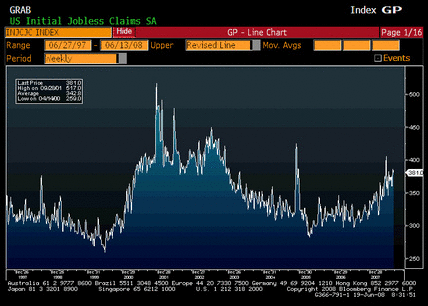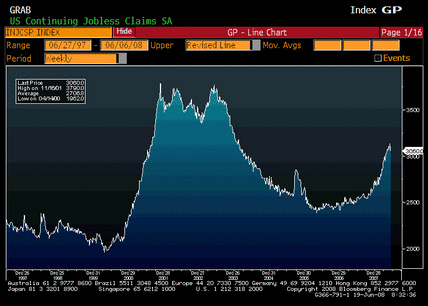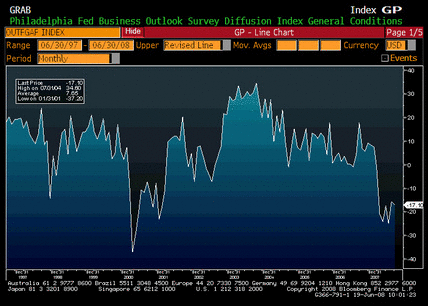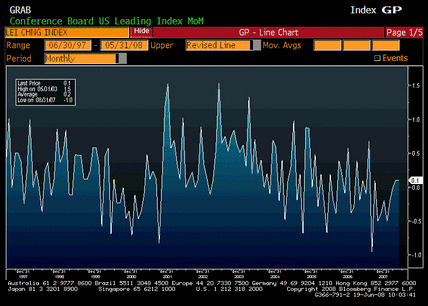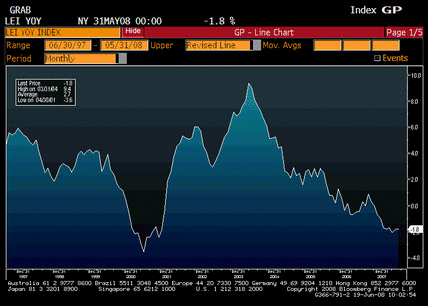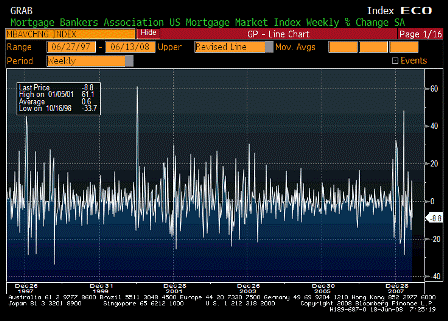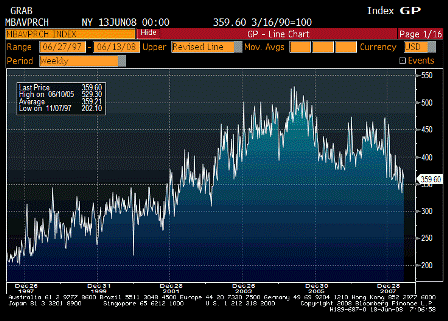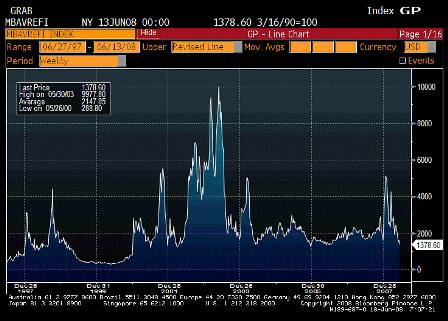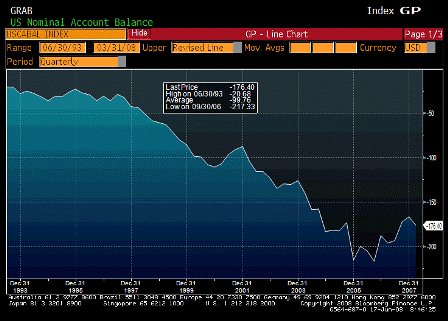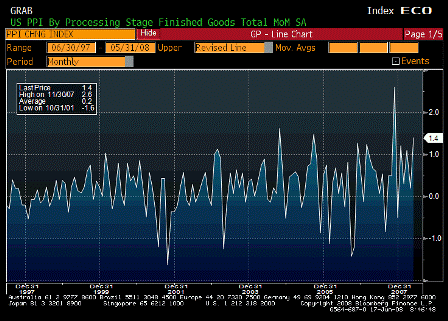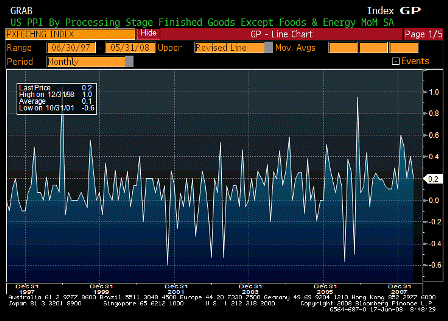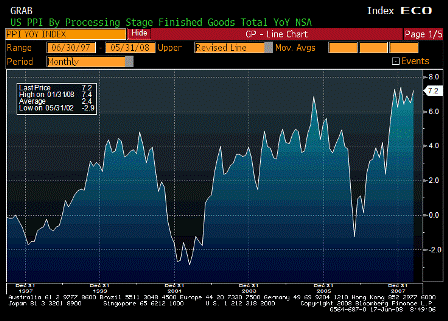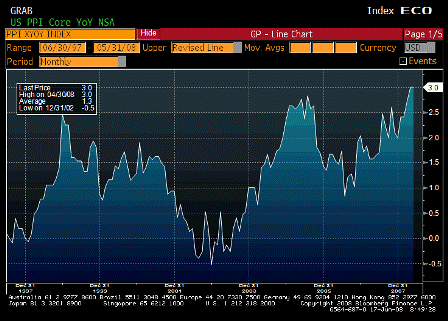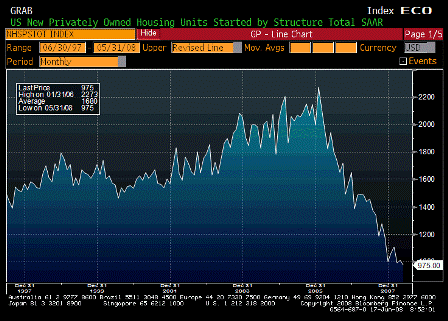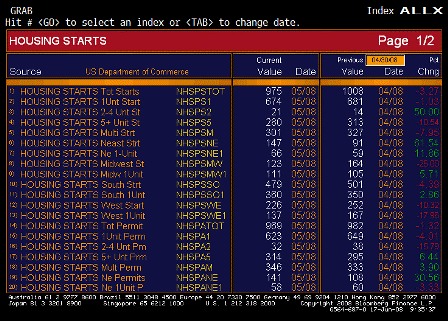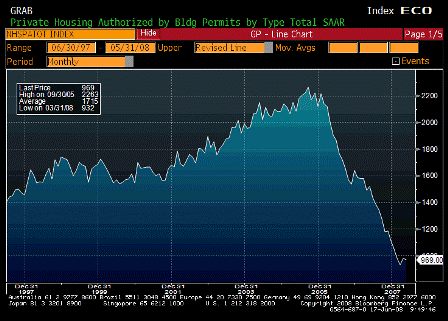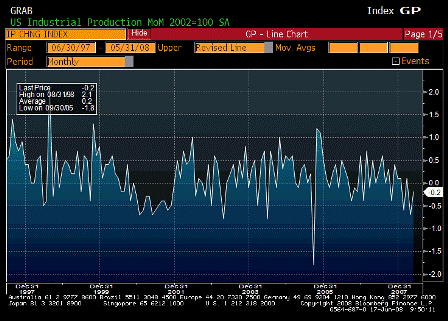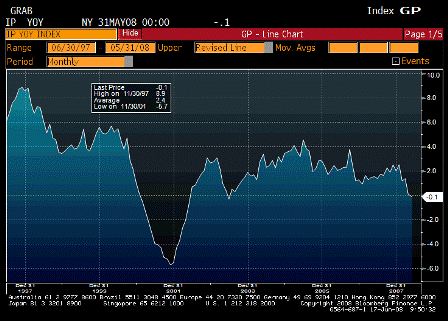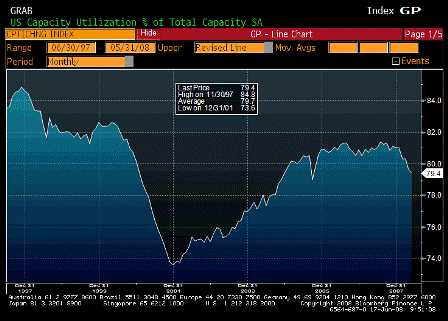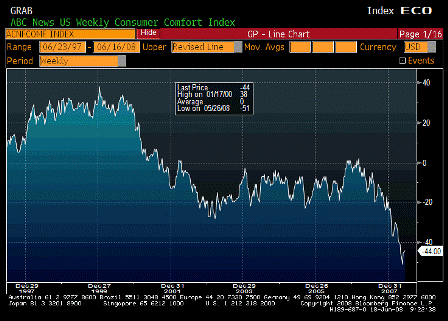[Skip to the end]
(an email exchange)
On Wed, Jun 18, 2008 at 4:24 PM, Bob wrote:
>
> Warren,
>
> Do you have any view as to why the Saudi feel a high current oil price is in
> their best long-term interests?
Not sure it is. They may have a political agenda of destabilizing the west.
The other possibility is that they know they have the only excess capacity, and are trying to get the price up cool demand so that they have a bit more ‘slack’ to deal with real supply shocks.
> Obviously they make more money in the short run with a higher price, but all oil
> consuming countries will:
>
> 1. Reduce consumption
>
> 2. Legislate higher fuel economy requirements on new vehicles
>
> 3. Accelerate development of alternative fuels (wind, solar, mining H3 from the
> moon, etc.)
>
> 4. Expand domestic production (given that high cost oil extraction methods are
> viable)
>
> 5. Expand domestic production (e.g., Bush & McCain seeking access to outer
> continental shelf)
Yes, and that would mean Saudi exports would fall, which also might be a good thing for them if they plan on increasing domestic consumption.
> I would assume the objective function (in an operations research sense) would
> be to maximize the total revenue earned on the sale of all oil in their
> possession.
Yes, though the current King is probably over 80 years old and may have other agendas, as above.
> It would seem to me the current effort to push up the prices could be
> short-sighted for it may backfire if it brings more supply online, generates
> research which produces a breakthrough in alternative energy development, or
> radically reduces demand.
>
> Bob
>
Yes, might be the case. But sure seems like that’s what they are doing!
warren
[top]

